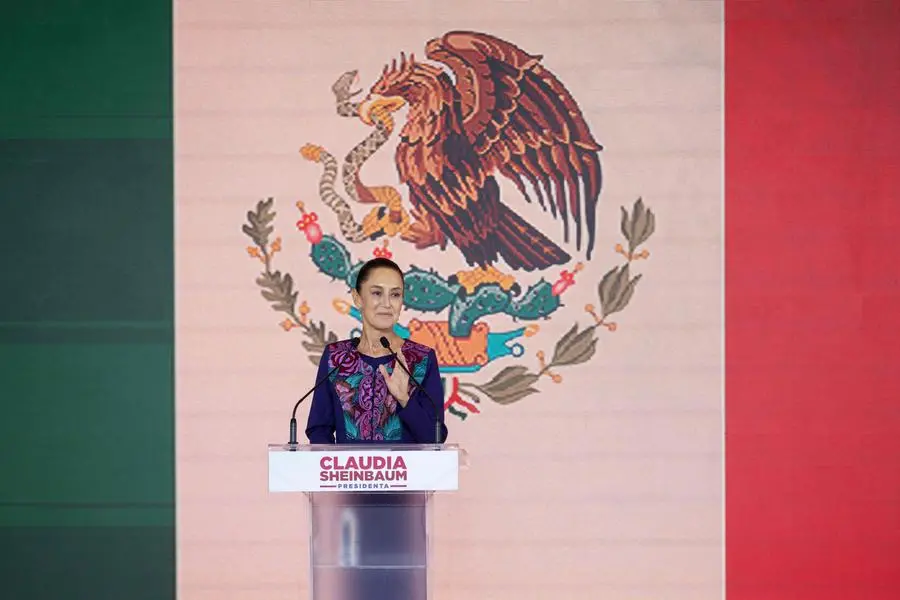PHOTO
Mexico's president-elect Claudia Sheinbaum faces a daunting array of challenges, including managing migration, delicate relations with the neighboring United States and criminal violence that makes murder and kidnapping daily occurrences.
Other urgent tasks include reducing a poverty rate of more than 30 percent and mitigating the growing impact of climate change in a country suffering drought and water shortages.
- 'Flourishing cartels' -
Despite outgoing President Andres Manuel Lopez Obrador's "hugs not bullets" policy of tackling crime at its roots, roughly 80 people are murdered every day in Mexico, including around 10 women and girls.
More than 100,000 people are missing and desperate relatives organize their own searches for remains.
"The ominous spread of organized crime and flourishing cartels is the most daunting problem Sheinbaum will need to confront," said Michael Shifter, an expert at the Inter-American Dialogue think tank in Washington.
"If she is not able to stem the dramatic deterioration of Mexico's security situation, it will be exceedingly difficult to pursue her economic and social policy agenda," he added.
Sheinbaum has promised to eradicate impunity and, like Lopez Obrador, focus on the causes of violence, for example by expanding youth programs.
She has pledged to strengthen the National Guard as well as intelligence agencies, and to improve coordination with police and prosecutors.
- 'No money' -
Sheinbaum inherits a fiscal deficit of almost six percent of gross domestic product, the largest in a quarter of a century, despite Lopez Obrador's austerity pledges.
"The most important challenge for the next administration will be to correct the high fiscal deficit," said Victor Ceja, chief economist of financial services firm Valmex.
The president-elect needs to boost the state coffers to finance the direct aid that 25 million young, elderly and disabled Mexicans receive, and to carry out reforms
"There's a lot she needs to spend money on, and there's no money," said Pamela Starr, a professor at the University of Southern California.
"The infrastructure is creaking. Electricity is a problem," she added.
Sheinbaum has touted the benefits of "nearshoring" -- the trend of companies moving production from Asia to be closer to the US market.
But Carlos Ramirez, an expert at the risk consultancy Integralia, warned that it would not be a "lifesaver" for Mexico, and that better security and infrastructure were needed.
Sheinbaum, who has a background in environmental science, has promised to increase investment in clean energy.
- Migration flows -
Despite a growing economy and political stability, criminal violence causes thousands of Mexicans to seek asylum in the United States.
Last year, nearly a third of the almost 2.5 million migrants intercepted at the southern US border were Mexican.
Stephanie Brewer, of the Washington Office on Latin America rights group, criticized the "containment, detention and border militarization" measures that Lopez Obrador ordered at the request of the United States.
Sheinbaum faces "the urgent task of breaking this cycle" and prioritizing the protection of migrants, she said.
- Testing US relations -
Mexico's relationship with the United States is complex at the best of times, with Washington pressing its ally to do more to curb cross-border flows of drugs and migrants.
Ties could become even more challenging if Donald Trump returns to the White House, according to experts.
If President Joe Biden loses the November election, "the relationship will be more punctuated by conflict," Starr said.
According to Shifter, "if he returns to the White House, Trump is expected to double down on his hardline stance on immigration, trade, and drugs, very sensitive issues crucial to the bilateral relationship."





















